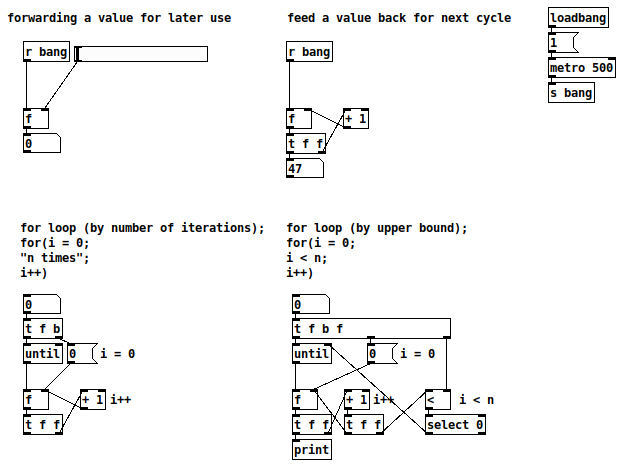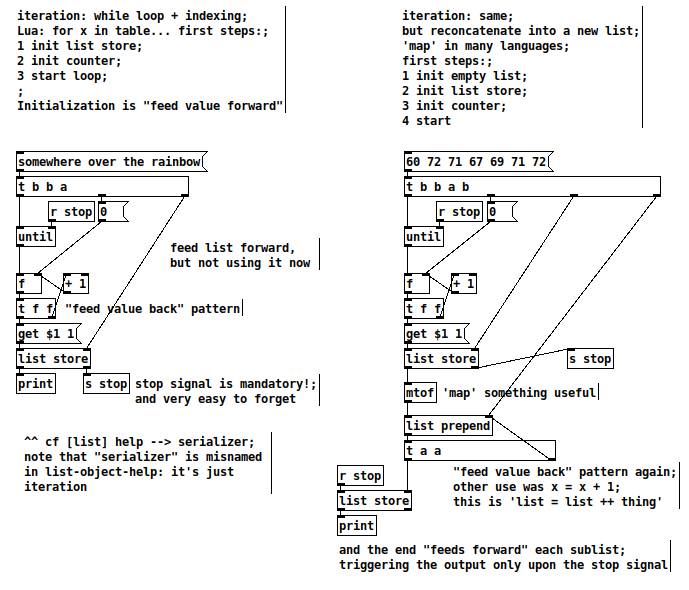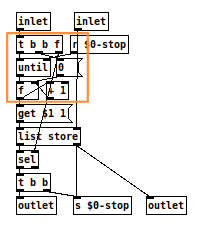This seems as likely a subcategory as any...
I'd like to connect with teachers using Pure Data in the classroom.
- Where are the stumbling blocks that you see students crash into frequently?
- (Anyone using Pd could chime in on that one... what are the things that confused you?)
- Are there any techniques/ideas/paradigms that helped the students to understand these difficulties more easily?
For a specific example: https://forum.pdpatchrepo.info/topic/13263/samphold-at-the-control-level -- "I want to get the number to update on the downbeat so it doesn't play anything while the number is being updated by some other process."
Extremely common scenario -- but I'll be danged if I can find anything in the help series that makes it clear.
This happens to be one of the sticking points for me -- which, lately, got me thinking about a paradigm of "feedforward" and "feedback" to cold inlets. It's (relatively) easy to understand chaining through hot inlets. Everything is immediate, and that's where the quoted question comes from -- if the only thing anyone taught you is how to chain immediate operations, then "save this datum for later" is scarcely even thinkable. (The quoted thread goes on to say "I'm having trouble explaining" -- meaning, whatever degree of exposure to Pd this user had, it wasn't enough to provide a vocabulary to talk about this problem.)
- "I have data now, but I don't want to use it until later" --> feed it forward to a storage object, then bang the storage object when you need it.
- "I want the next cycle of a loop to operate on the result of this cycle" --> feed it back to a storage object that's triggered by the loop.
This solves a bunch of problems. The quoted problem -- (data source) feeds forward to [f] right inlet. Or, initializing a counter at the beginning of the loop (feedforward). Or, building a list iteratively, but outputting only the final list (on each loop iteration, feed the list-in-progress forward to list storage, and bang the storage when the list is finished -- for this one in particular, I had struggled in the past with various bizarre usages of [spigot] but this is much easier).
One of the things I was missing over the last year and a half of getting up to speed in Pd is an established vocabulary of usage patterns. Sometimes I think Pd and Max pedagogy tries to stay away from typical computer-science problems -- but sooner or later, you're going to run into problems that have standard solutions. So why not collect them into a unified place? Like, in SC, for the fourth example below I can just write arrayOfMidiNotes.collect { |note| note.midicps } and uses of collect are all over the place in the help system... but in Pd, it took me literally over a year to figure out the best way to collect / map. That's... kinda crazy.
hjh







 subtracting the new index from the length of the list..
subtracting the new index from the length of the list..
 ... which you did exactly in the "scan a list for a value" thread.
... which you did exactly in the "scan a list for a value" thread.